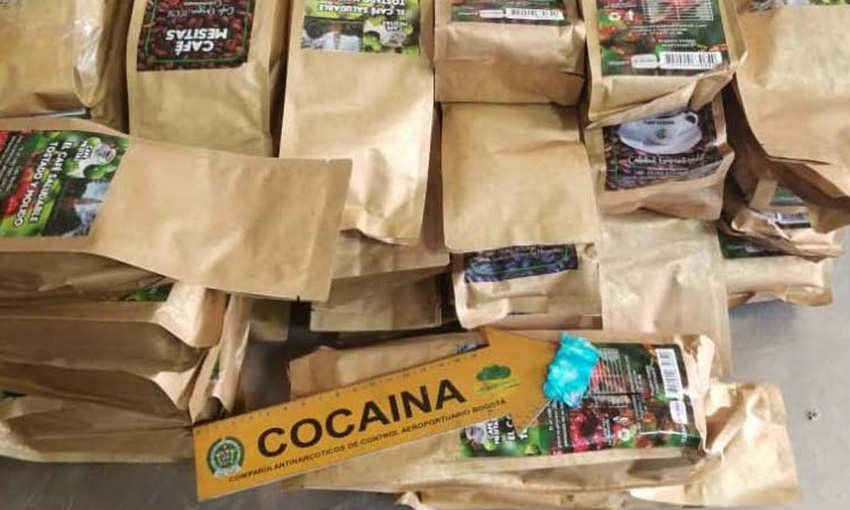THE Australian Federal Police have arrested a 41-year-old Spanish national in Wollongong after Colombian authorities seized more than 35 kilograms of cocaine bound for Australia.
The AFP and Colombian National Police conduct joint operational activity to combat transnational serious organised crime through officers based in Bogotá.
As part of that arrangement, an air-cargo consignment labelled as “roasted coffee” bound for the Wollongong area was examined at Bogotá Airport late last month by the Colombian National Police. The cardboard box with 67 bags of coffee was found to contain packets of a powdered substance inside the coffee bags.
The substance returned a positive result for cocaine, weighed a total of approximately 35.6 kilograms and was seized by Colombian authorities.
The AFP investigation into the attempted importation, known as Operation Specs, revealed the alleged involvement of a Spanish national residing in the Wollongong suburb of Port Kembla.
AFP officers executed search warrants Wednesday (8 September) where the 41-year-old man was arrested at his Port Kembla home. During the search warrants police seized 1.84 kilograms of cocaine and located a clandestine laboratory.
The man was charged with importing cocaine, trafficking a marketable quantity of cocaine and dealing with property suspected of being proceeds from crime.
The maximum penalty for importing a commercial quantity of border-controlled drugs is life imprisonment. The maximum penalty for dealing with property reasonably suspected of being proceeds of crime is two years’ imprisonment. The maximum penalty for trafficking a marketable quantity of a controlled drug is 25 years’ imprisonment.
The AFP has not ruled out the possibility of further arrests as the investigation into the attempted cocaine importation continues.
AFP Detective Superintendent Craig Bellis said transnational serious organised crime syndicates will continue targeting Australia for its profitable illicit drug trade.
“The AFP works closely with its international law enforcement partners to identify and track the movement of illicit drugs bound for Australia because no one nation can tackle the scourge of illicit drugs alone,” Detective Superintendent Bellis said.
“Our priority remains the same – identify and prosecute the organised crime syndicates and individuals involved and stop the flood of these illicit and harmful drugs from reaching our communities.”
Anyone with information about the supply and distribution of illicit drugs in the Wollongong area is urged to please contact Crime Stoppers on 1800 333 000 or report online.





